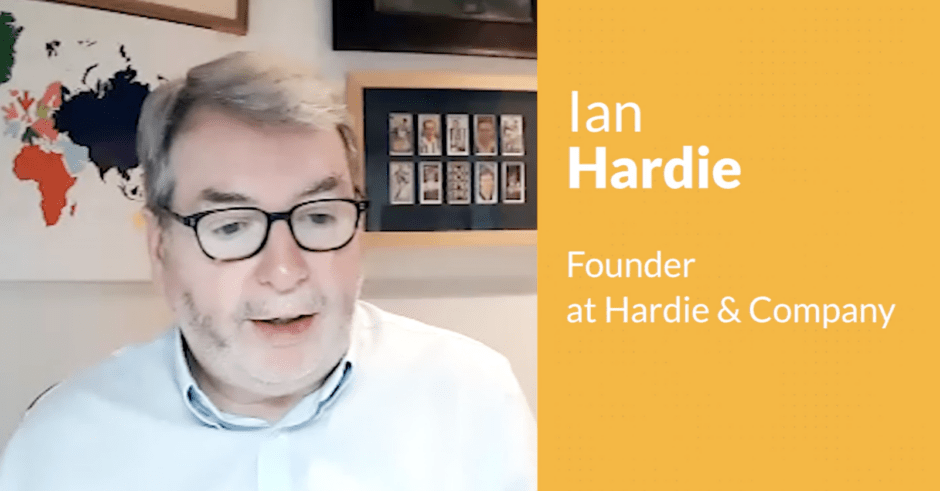As we continue this fascinating series in partnership with PeopleSmart, around Leading into the future, we welcome Ian Hardie (Founder at Hardie & Company).
This conversation brings to life Ian’s view on how we can create more ‘pull learning’ situations through technology rather than the historic classroom push learning. Learning needs to be happening in the workplace, in which case for a lot of organisations, video is now a large part of the workplace.
Technology has always however been a large barrier to virtual learning. Individuals have to be taught technology first before getting them to do the learning you need them to do. Despite this, the advantage of everyone now using technology is that everyone now knows how to work, operate and connect virtually, and therefore those barriers of technology can be voided.
As the technology barrier is down, organisations need to think about what the triggers are. How can they encourage and motivate people to want to learn and identify what the impact of learning is? On the other hand, face to face learning will not completely die out and therefore, there will be some occasions where you have to meet in person to be successful
Ian then goes on to discuss whether the move to more virtual environments has created a new challenge for learning, in which he explains that having a learning mindset is key.
“Everyone does their best when they are motivated to do their best.”
This is one of the responsibilities of people who deliver training, learning is to ensure that the brand and desirability is built into the provision they create. Organisations need to ensure that their people are drawn into it.
A phrase identified by Ian is ‘Learning works’ – If people see what impact learning has, then they are motivated and drawn to it even more. The key is that individuals need to understand what will happen once they are engaged in learning and what will happen if they don’t. They need to identify what the missed opportunity is which enables them to want to learn and do things themselves.
Ian acknowledges that we are seeing a variety of trends. Some include:
- The modularisation of learning – Learning is being broken down into smaller and smaller chunks. However, with this in place, there is also the risk of taking away that interest and fascination of long term learning.
- We will see this facilitation and connection with a coach, mentor or expert which will mean there is more facilitated learning going forward.
About PeopleSmart
PeopleSmart provides innovative learning solutions, both virtual and in-person, to organisations in many countries, cultures and languages, focusing on leadership and people development in the context of digital transformation, change management, culture change and the increasing need for Emotional Intelligence.
We do this through a dedicated network of 65+ consultants working globally, providing a broad range of Consulting, Coaching and Learning Services to a wide variety of industries and clients in over 20 languages.
PeopleSmart supports companies through transitions by offering practical, easy to implement and effective interventions. And in our virtual offerings, our consultants use the latest, cutting edge technologies and tools to provide rich and participatory learning experiences.

